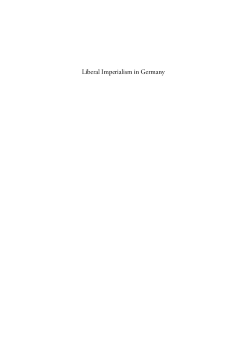
Additional Information
Book Details
Abstract
In a work based on new archival, press, and literary sources, the author revises the picture of German imperialism as being the brainchild of a Machiavellian Bismarck or the "conservative revolutionaries" of the twentieth century. Instead, Fitzpatrick argues for the liberal origins of German imperialism, by demonstrating the links between nationalism and expansionism in a study that surveys the half century of imperialist agitation and activity leading up to the official founding of Germany’s colonial empire in 1884.
" This is an important.[and] a very strong book. It successfully challenges older paradigms that separate German liberalism from imperialism or see the conjoining of the two as a late aberration." · German History
"The author’s] elegant account…represents a timely and important contribution to the existing literature...[that] represents the most sustained attempt to reframe the argument." · The American Historical Review
"...this is a stimulating work with a solid argument and place in the current historiography. In this, it draws attention to the importance of discourse on overseas expansion within many sectors of the German liberal-nationalist movement." · Canadian Journal of History/Annales canadiennes d’histoire
"Fitzpatrick's short but hard-hitting book seeks to reinstate imperialism as a fundamental constituent of German liberalism. As such it is a welcome and worthy addition to Berghahn's invaluable 'Monographs in German History' series." · Central European History
Matthew P. Fitzpatrick lives in Adelaide, Australia and is a lecturer in international history at Flinders University. He has published on German liberalism, nationalism, comparative genocide and on German cultural history. He has been a DAAD visiting postgraduate researcher at the University of Münster in Germany and has also taught at the University of New South Wales, the University of Paderborn and the University of Newcastle.
